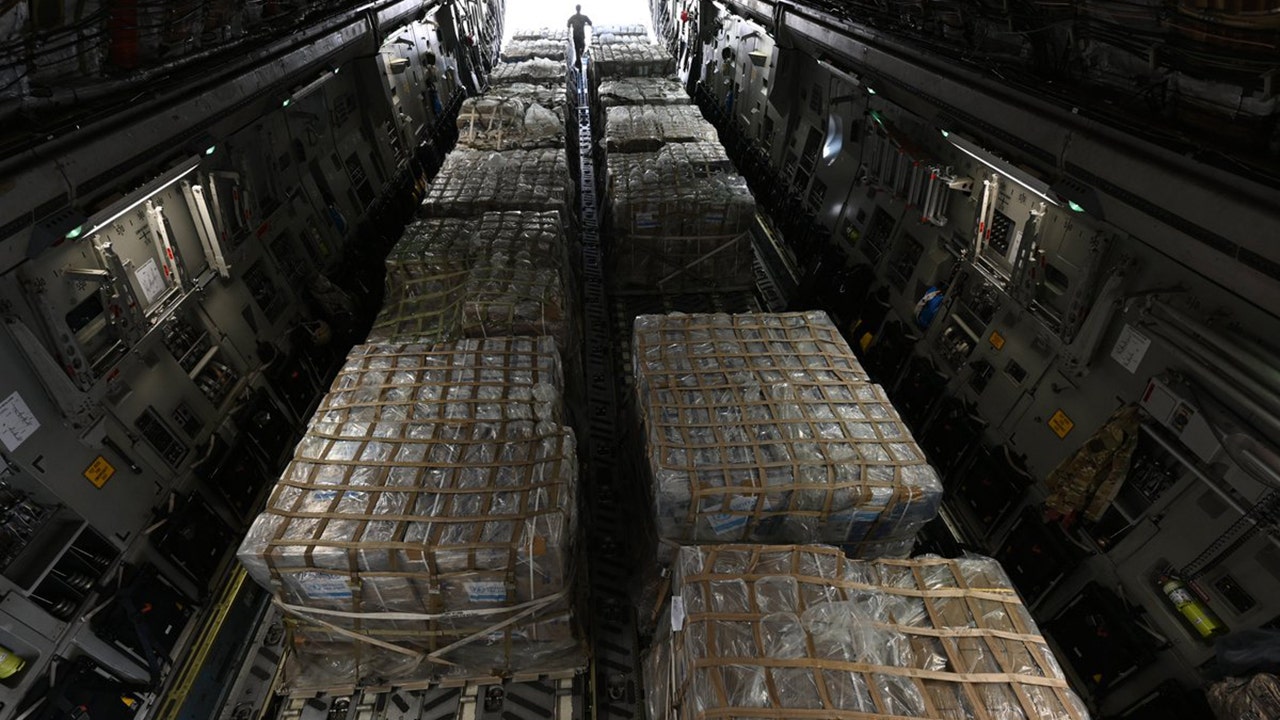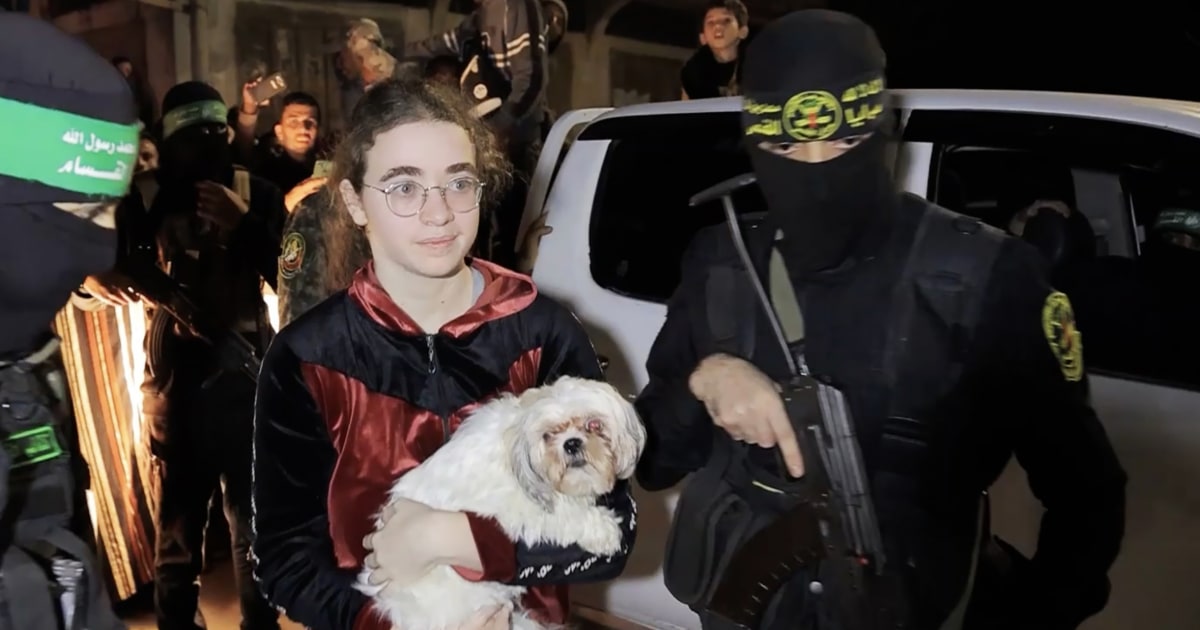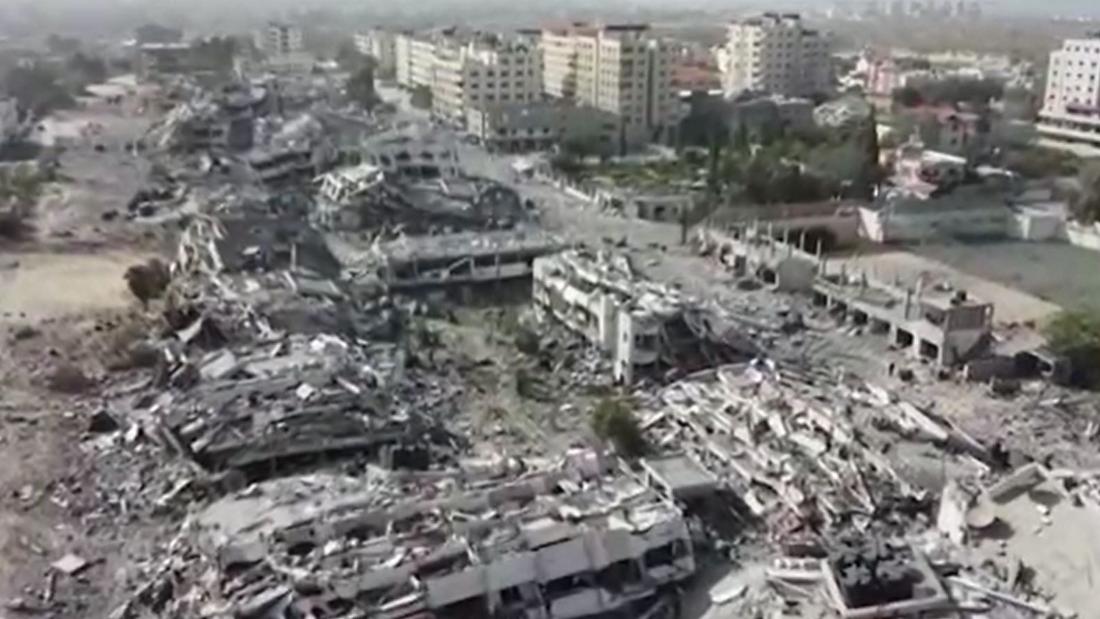Israel and Hamas agree to hostage deal in a major diplomatic breakthrough

’s biggest stories in markets, tech, and business — delivered daily. Read preview

By clicking “Sign Up”, you accept our Terms of Service and Privacy Policy . You can opt-out at any time.

Israel's cabinet approved a hostage release deal on Wednesday morning local time, a major diplomatic breakthrough that comes more than six weeks into the devastating war between the two sides.
In a statement, Israel's government said it approved the outline of the first stage of an agreement that will see the release of 50 hostages who were abducted by Hamas during its October 7 terror attacks in exchange for a four-day ceasefire. The government added that the pause in fighting would extend one day for every 10 additional hostages released.
Hamas said in a Telegram post that it agreed to the deal and that 150 Palestinian prisoners held by Israel would be released.
"The Government of Israel, the IDF, and the security services will continue the war in order to return home all of the hostages, complete the elimination of Hamas, and ensure that there will be no new threat to the State of Israel from Gaza," the Israeli government said in a statement.
Despite the tentative agreement, it remains unclear exactly when the hostage and prisoner exchange will be completed. NBC News reported the families of victims of people in Israeli jails will have 24 hours to appeal to Israel's Supreme Court to object to the deal.
The groundbreaking development follows weeks of intense negotiations and high-level engagement involving Israel, the US, Qatar, and Egypt, a senior Biden administration official told reporters on Tuesday, adding that this first phase of the deal involves only the 50 women and children.
On Wednesday morning, Qatar released a statement saying that the start time of the pause would be announced in the next 24 hours.
The pause will "allow the entry of a larger number of humanitarian convoys and relief aid, including fuel designated for humanitarian needs," according to a statement from the Qatari foreign ministry .
Hamas is believed to be holding around 240 hostages — including Israelis, Americans, and other foreign nationals — who were captured during the militant group's brutal rampage, which left over 1,200 people dead. The Israeli government has been under widespread domestic pressure to secure their release, while protests and demonstrations have sprouted in major cities around the world in a show of solidarity with the hostages and their families.
Israeli Prime Minister Benjamin Netanyahu meets with soldiers as he visits an Israeli army base in Tze'elim, Israel November 7, 2023. Israeli Government Press Office/Haim Zach/Handout viaThe US has provided Israel with both diplomatic support and aerial surveillance to help with its hostage recovery efforts. White House National Security Council Spokesperson John Kirby told reporters on Monday that the Biden administration was working "hour by hour" and "doing everything we can" to secure their release.
Earlier on Tuesday, Israeli Prime Minister Benjamin Netanyahu's office said that between 6 p.m. and 8 p.m. local time he will convene the country's war cabinet, security cabinet, and government, in three separate meetings. The office said the announcement comes "in light of developments on the issue of the release of our hostages," indicating that a deal may be in reach. Four hostages have already been released from Gaza.
Emi Palmor, who previously served as the director general of Israel's Ministry of Justice and has experience on a hostage negotiation team, said this could end up being the only deal that the country manages to reach with Hamas, and its also uncertain if the militant group will actually honor its agreements.
"The government is trying to do its best," she told Business Insider. "The decisions are extremely difficult and it's a risk management because, I think that even without saying this, everyone understands that we are playing with the devil."
An Israeli soldier rides in a tank amid the ongoing ground operation against Hamas in this handout image released November 20, 2023. Israel Defense Forces/Handout viaHow a pause in the ongoing fighting — which Israeli officials vow will continue until Hamas is ultimately destroyed — will play out remains unclear. The Israel Defense Forces (IDF) is several weeks into its ground offensive and controls large swaths of territory in northern Gaza while its warplanes continue to bombard the coastal enclave, where over 12,000 people have been killed since the war began in early October.
IDF Chief of the General Staff Lt. Gen. Herzi Halevi told reserve soldiers on Tuesday that the ground operations in Gaza are creating "better conditions" for bringing back hostages. "It hurts Hamas, it creates pressure, and we will continue this pressure," he said.
Both Israel and the US have previously rejected growing calls from the global community for a ceasefire, with the White House arguing that it benefits Hamas and gives the militant group time to regroup. The Biden administration has, however, managed to get the Israelis to agree to short pauses on a daily basis to allow for civilians to evacuate northern Gaza and facilitate the movement of humanitarian aid.
The fighting, meanwhile, has not been limited to Gaza, and has drawn in other Iran-backed militants like Hezbollah in Lebanon and the Houthis in Yemen. US forces in Iraq and Syria have also been attacked dozens of times over the past month by groups that are supported by Tehran.
Correction: November 22, 2023 — An earlier version of this story misstated who has 24 hours to appeal the deal to Israel's Supreme Court. NBC News reported the families of victims of people in Israeli jails will have 24 hours to object to the deal, not the families of hostages.



















